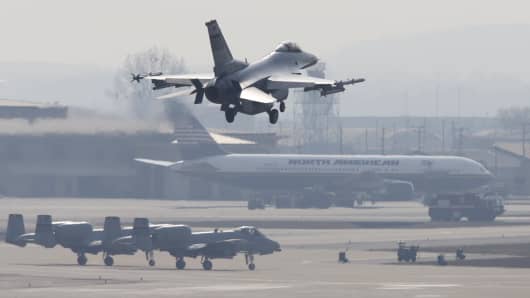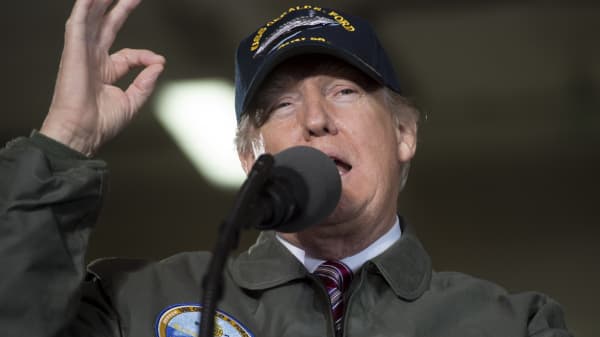Donald Trump's proposed new budget plan calls for $54 billion in increased defense spending. The money will be mostly used to buy more jets, ships and military technology. But the president could buy all that stuff without adding a single dime to the defense budget.
That's because the biggest chunk is the roughly $156 billion we spend per year maintaining overseas military bases. That's almost three times the cost of the proposed budget increase, and it's ripe for the cutting.
But first, let's dig into this foreign base issue a little more. I'm not saying all of the roughly 800 bases and military installations we have in about 80 countries should go. But just consider these numbers: We have 174 bases and military sites in Germany alone. We also have 113 in Japan and 83 in South Korea. We even have one in Aruba, yes Aruba.
Each one of these foreign bases costs the taxpayers not just in maintenance bills, but in payments we often have to make to those foreign countries to use their land or coastlines. And there are also the costs of maintaining diplomatic relationships with those nations to make sure they don't suddenly kick our troops and bases out.






